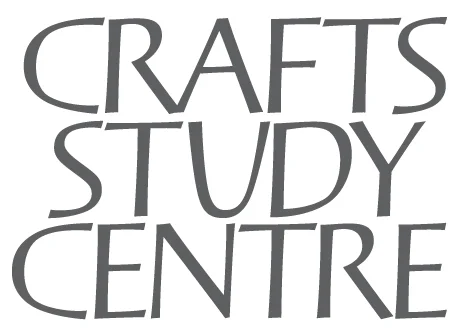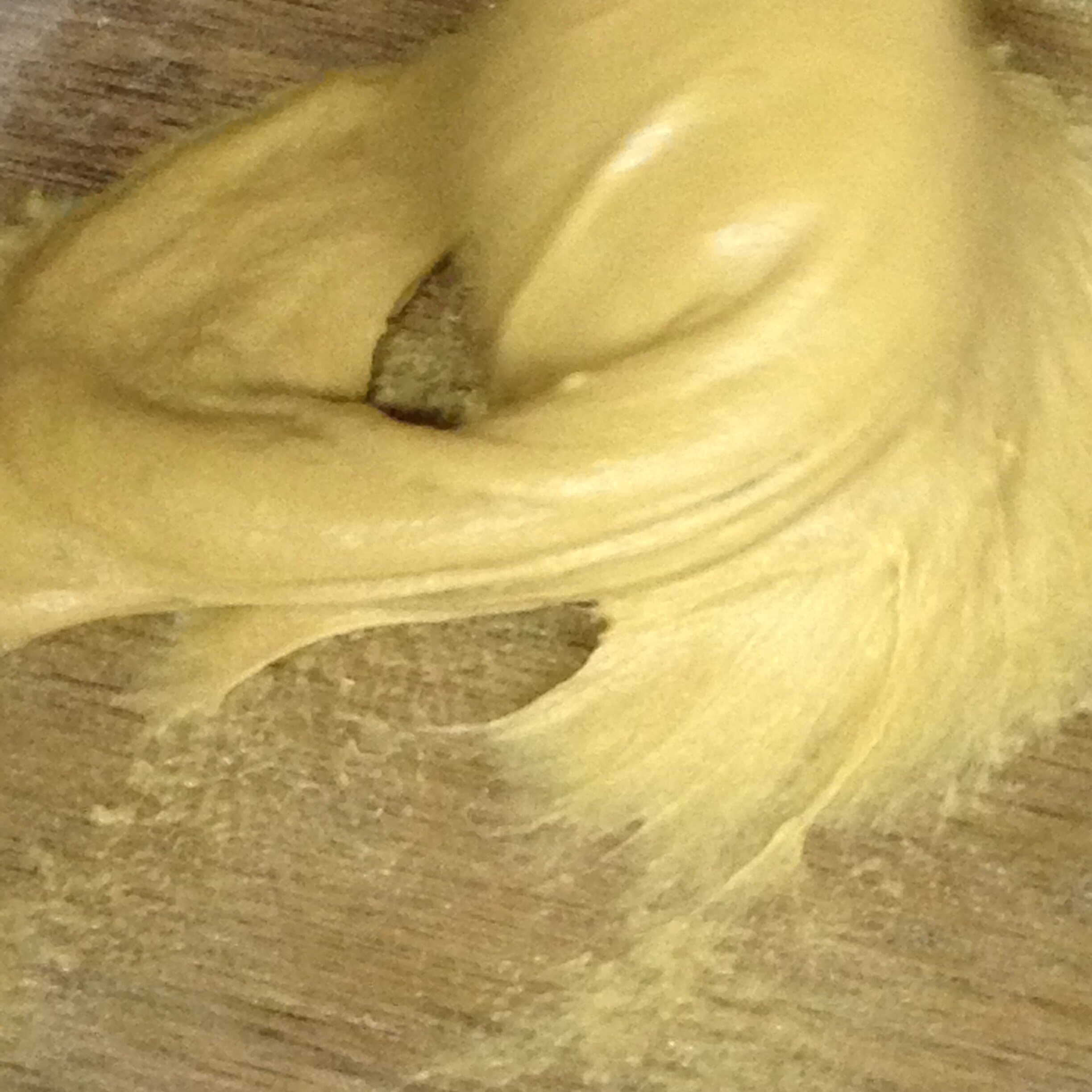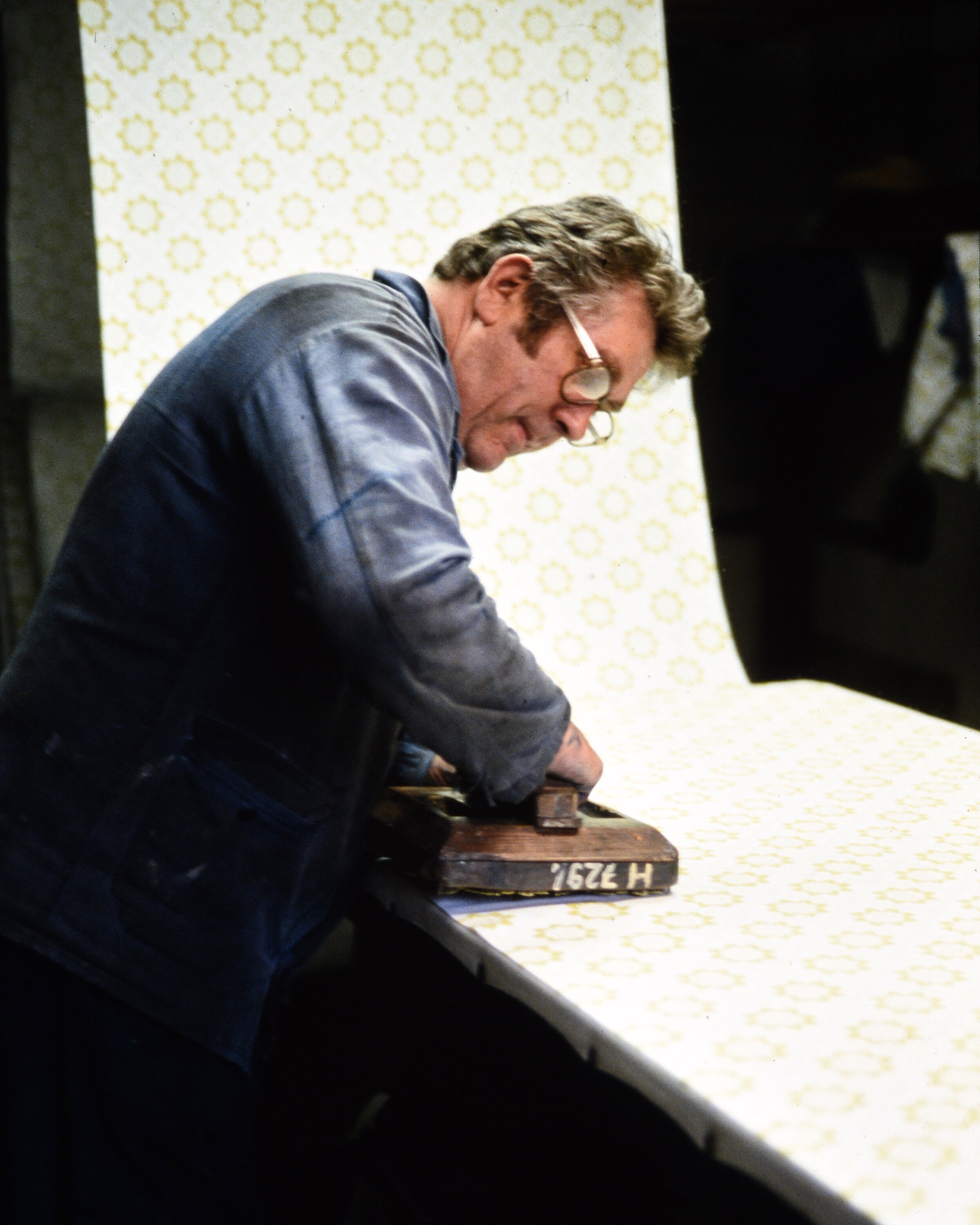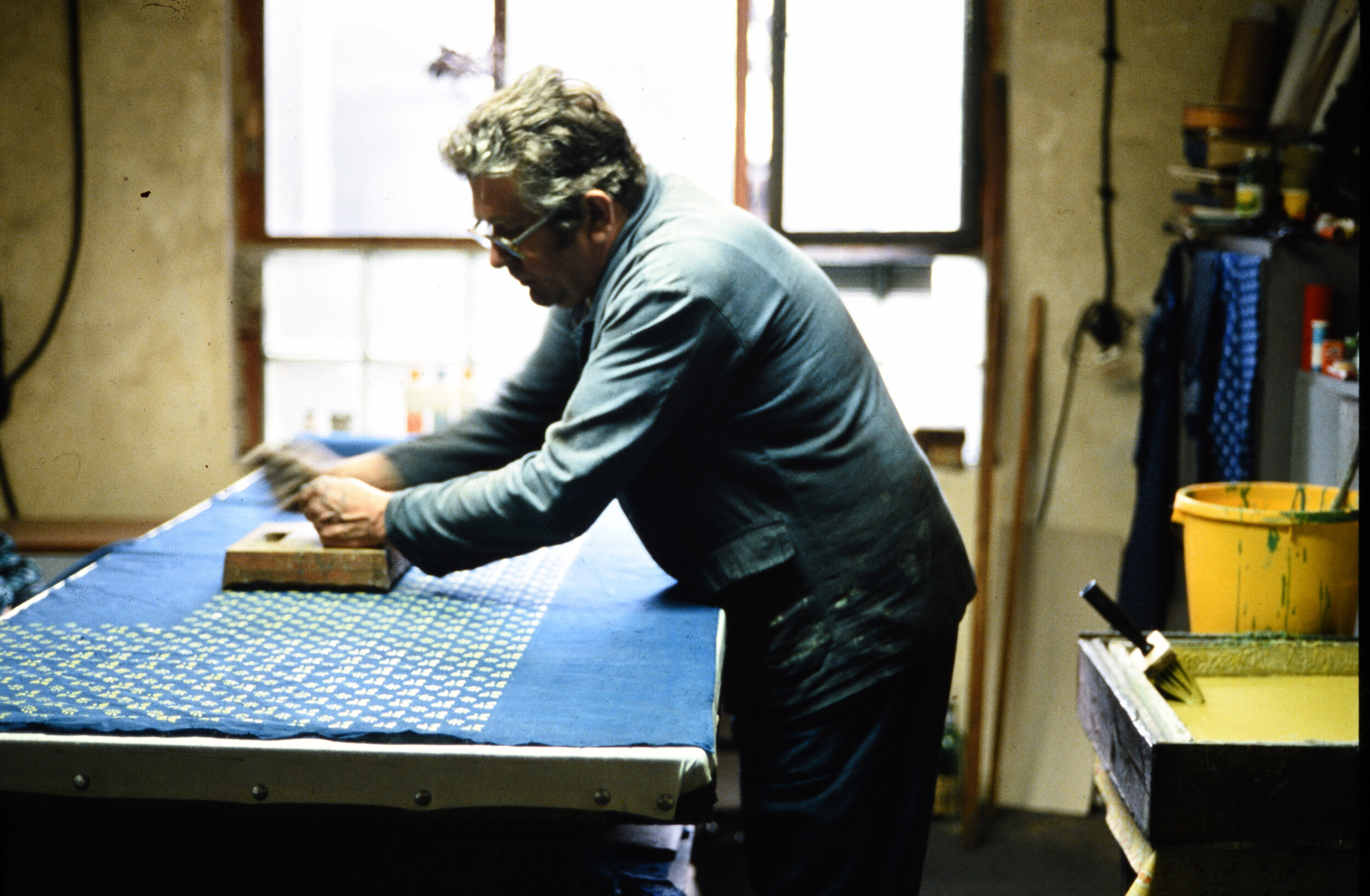Linda : Project Introduction
/'Rhythm' (2017), indigo over discharge and katazome paste on linen, Linda Brassington
During thirty years of practice, I have encountered resistant materials in dye workshops from Central Europe to Asia. It is the pastes that have proved to be the most fascinating. Whether printed from a block, or painted with a brush or squeegee, it has been difficult to understand their complexities, and to control the subtlety of their substances on cloth.
Block printed mud resist on cotton, Rajasthan, India, 1989, Linda Brassington
Indigo vat at the Higeta Indigo Workshop, Mashiko, Japan, 2016, Linda Brassington
Katazome paste, Higeta Indigo Workshop, Mashiko, Japan, 2016, Linda Brassington
I remember the dexterity demonstrated by the late Stanislav Trnka in the traditions of Slovak blueprint - the block printing of paste onto cloth to resist indigo, a process echoed in the heritage of Georgian supra. In the Indian villages of Bagru and Sanganer in Rajasthan, it is mud that is block printed to protect the red and yellow patterning from blue dye, shielding the mordants, madder and pomegranate from indigo. I recall the mud-printed cloth stretched out to bake in the hot sun, to harden against the penetration of dye that was to follow. During my art residency at the Higeta Indigo Workshop in Mashiko, Japan, katazome paste was dependent on multiple processes in its making, and was the most demanding of all substances to apply. Katazome is a fine balance between consistency of paste and pressure of application – spreading a layer dense enough to resist indigo, while not so thick that it oozes under the stencil.
Linda Brassington as Artist in Residence 2016 with staff at the Higeta Indigo Workshop, Mashiko, Japan. Photo Mayumi Tsukimura
Each of these materials has its own unique qualities and characteristics. What other starches and minerals might have the potential to resist dye or colour cloth? What other pastes might be developed? This will be my challenge in the Crafting Futures project.
Stanislav Trnka block printing a resist paste on cotton, Puchov, Slovakia, 1985, Linda Brassington
Stanislav Trnka block printing resist paste on dyed cloth, Puchov, Slovakia, 1985, Linda Brassington










